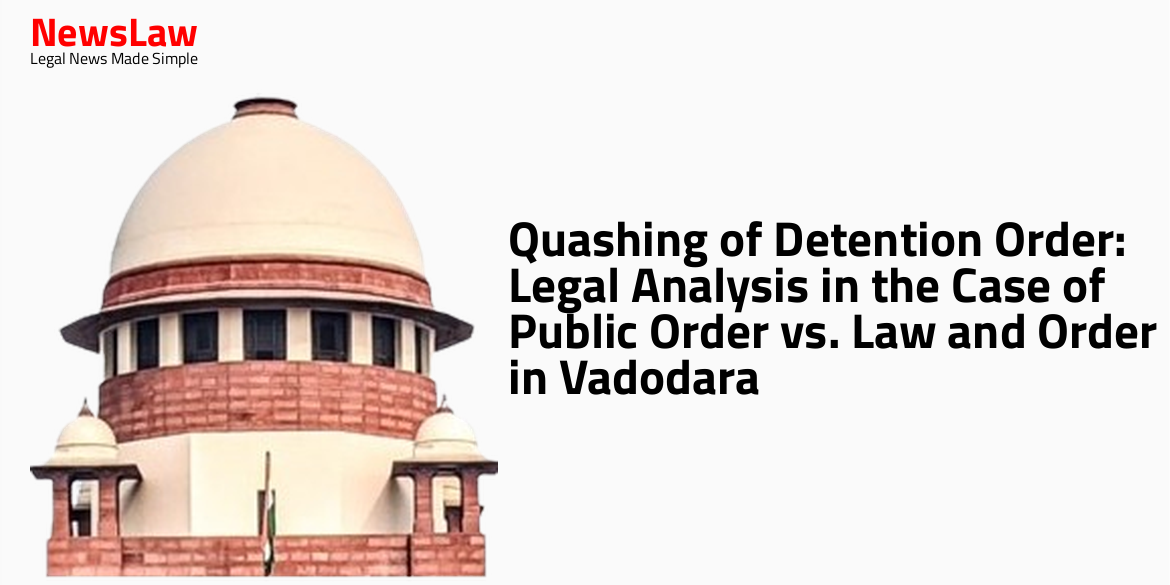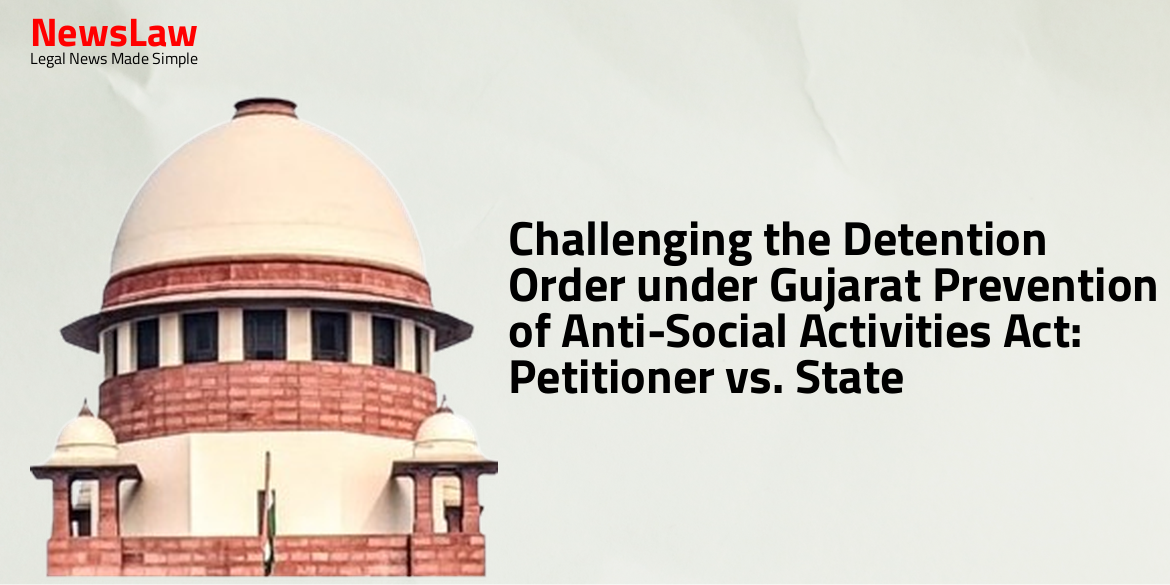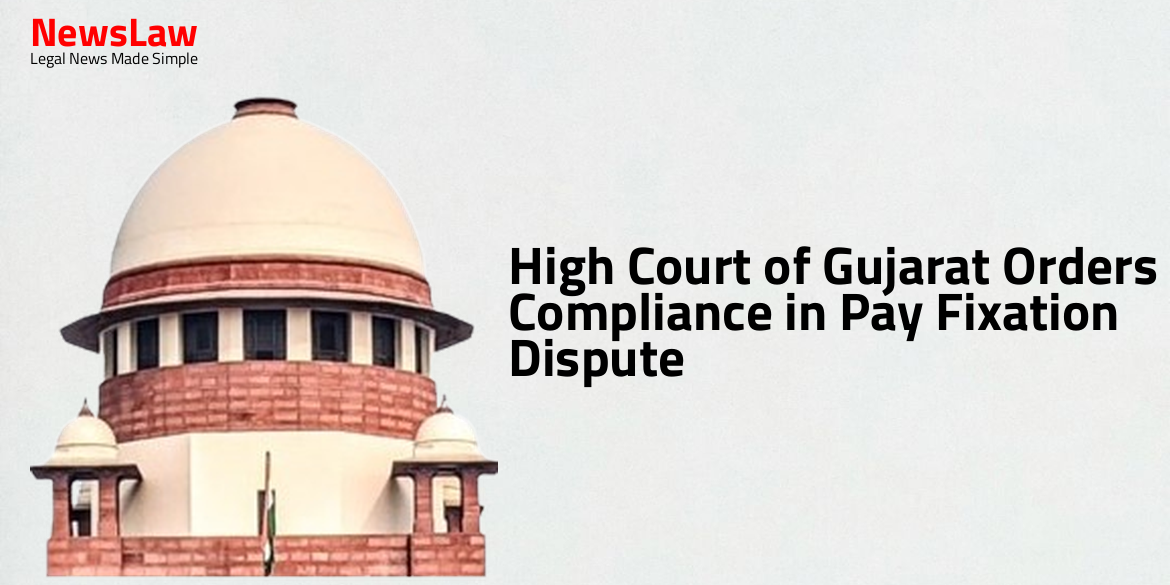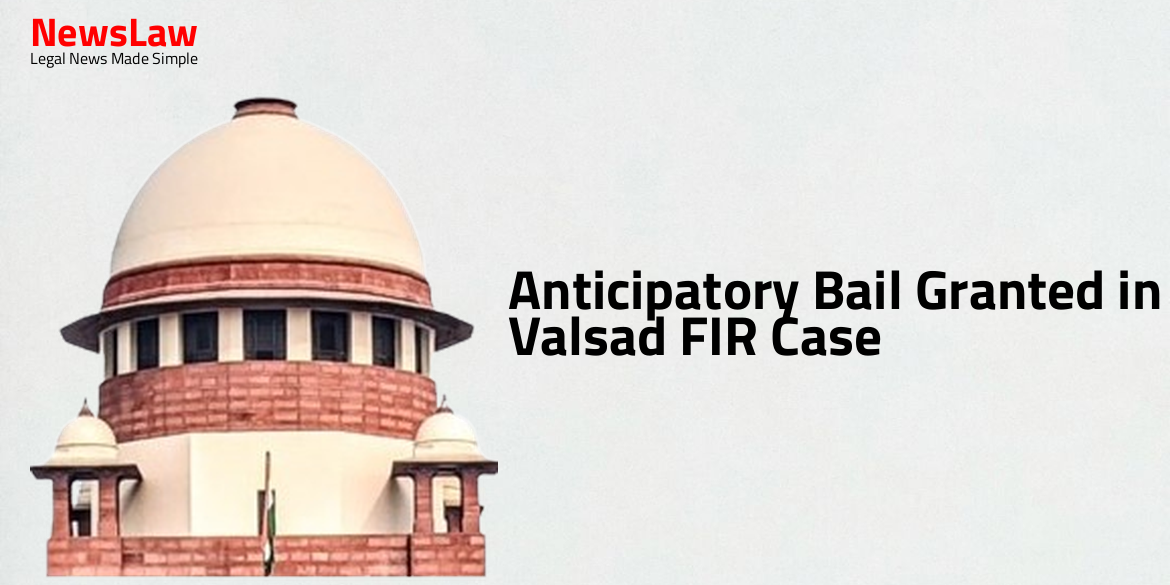In a significant ruling by the Gujarat High Court, the detention order dated 16.01.2024, concerning the maintenance of public order versus law and order in Vadodara, was quashed. The petitioner challenged the authority’s decision, arguing non-application of mind and vague reasons cited. The judgment delves into the distinction between the two aspects and the lack of conclusive evidence to prove adverse effects on public order. This blog post explores the legal intricacies of the case. #PublicOrderVsLawAndOrder #GujaratHighCourt
Facts
- The Hon’ble High Court considered the submissions made by the petitioner challenging the detention order dated 16.01.2024.
- It was argued by the petitioner that there was non-application of mind by the authority while passing the detention order.
- The court observed that the reasons provided in the detention order were vague and lacked specific details about the acts committed by the petitioner.
- The court also noted that the allegations against the petitioner were based on WhatsApp messages and there was no concrete evidence presented to substantiate the claims.
- The Hon’ble High Court held that the detention order was not sustainable in law and violated the petitioner’s rights.
- As a result, the detention order dated 16.01.2024 was quashed and the petitioner was ordered to be released from preventive detention.
Issue
- The issue to be determined is the legality of the detention order issued by the Detaining Authority under the Act of 1985.
- It is necessary to evaluate whether the detention order is in accordance with the law and the provisions of the Act.
- This requires a detailed examination of the facts presented by both parties and the submissions made.
Arguments
- The advocate for the detenue argues that the grounds of detention are not related to public order but rather to law and order.
- The registration of the offense is not considered to have adversely affected or likely to affect the maintenance of public order as per the Act.
- The alleged offenses do not impact the maintenance of public order but only law and order.
- The detenue’s activities are prejudicial to the maintenance of law and order, not public order.
- Detaining authority passed order due to detenue being a habitual offender
- Detenue’s activities have negatively impacted society
- Order was made to prevent detenue from acting in a manner prejudicial to public order in Vadodara
Analysis
- The authority wrongly concluded that the detenue’s activities were prejudicial to public order based on two criminal cases, which in truth do not relate to public order maintenance.
- The term ‘Cyber Offender’ under Section 2(ba) was defined and there was no evidence to prove the applicant was convicted as such.
- The grounds of detention mentioned criminal cases against the applicant but he was granted bail in all of them.
- The applicant being a bootlegger does not automatically warrant preventive detention unless his activities adversely affect public order, which was not proven in this case.
- The order was executed and the applicant is currently in Bhavnagar District Jail.
- Every act of assault or injury to specific persons does not lead to public disorder.
- Contravention of any law affects order, but to affect public order, it must affect the community or public at large.
- Drawing a line of demarcation between serious forms of disorder affecting the community and minor breaches of peace.
- A mere disturbance of law and order leading to disorder is not sufficient for action under the Preventive Detention Act; it must affect public order.
- The detaining authority failed to show that the petitioner’s alleged activities would adversely affect the maintenance of public order.
- The alleged offences and allegations against the petitioner did not create feelings of insecurity, panic, or terror in the public.
- The activities of the detenue did not adversely affect or have the potential to adversely affect public order.
- The subjective satisfaction of the detaining authority was not considered legal, valid, or in accordance with the law.
- The petition stands allowed, and the order dated 16.01.2024 passed by the authority is quashed.
Decision
- Direct service permitted.
- Rule is made absolute accordingly.
- Detenue to be set at liberty forthwith, if not required in any other case.
Case Title: SAJIDKHAN JAHULKHA THRO FARUK KHAN RAMZAN KHAN Vs. STATE OF GUJARAT
Case Number: R/SCA/1464/2024



